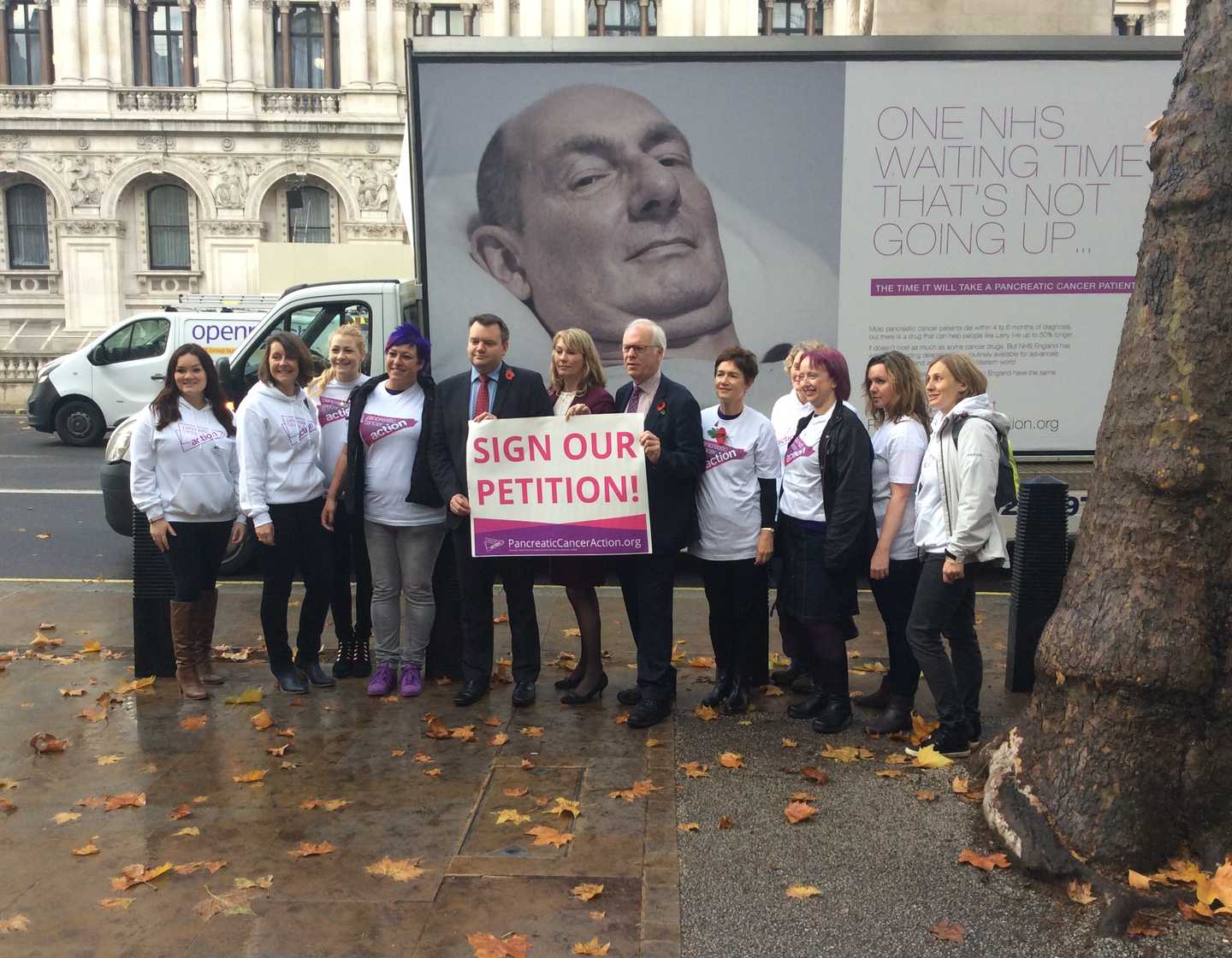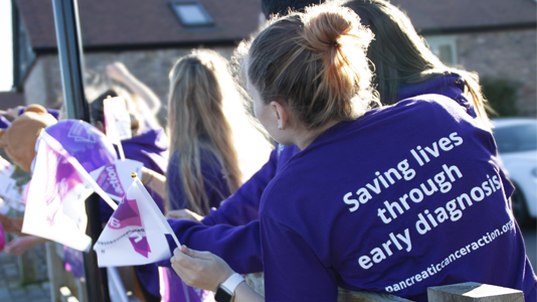Write to your local politician
Help us represent patients throughout the year! Early diagnosis and improving the survival rate of pancreatic cancer is a challenge and we still have a long way to go. It can sometimes feel difficult to know the best way to help and how to make a difference. One of the simplest ways of campaigning is by contacting your local politician.
How can contacting my local politician help?
Your local politician is there to help with matters that central government are responsible for. This includes the health service and policies that affect pancreatic cancer. Your local politician represents the concerns of their constituents, this is on average around 70,000 people. Therefore, your local politician is likely to receive a lot of communication and it‘s important to have a simple and powerful ask.
It also helps if local politicians receive communication from multiple constituents. Asking local family and friends who share your concerns to write may help to amplify your voice.
Who should I contact?
Different ways of contacting your local politician
-
One of the best and easiest ways to campaign with us and raise the profile of pancreatic cancer is by contacting your local politician.
Some suggestions of information you can share and how they can support the cause is provided further below. By also adding your personal interest or connection your local politician may pay greater attention to it. Please make sure you include your postcode in your communication, so that they know you live within their constituency.
-
With many public figures using social media, tagging your local politician is an easy and personal way to engage with them.
When posting it’s best to:
- Show how pancreatic cancer has affected you personally
- Try to get a dialogue going by asking them a question
- Highlight the facts and statistics of pancreatic cancer and ask them to get involved
- Use links, for example our website
- Use Hashtags, for example #PancreaticCancer
-
Very few people lobby their local politician by phone but it can be a great way to get heard and initiate discussions. If you decide to call them, prepare in advance what you want to say and keep it concise to include, at most, your top concerns or issues.
What shall I write about?
When contacting your local politician, you can discuss the issues about pancreatic cancer that concern you, and also let them know how they can get involved.
Current concerns include:
- Over 10,500 people are diagnosed with pancreatic cancer each year.
- Pancreatic cancer is the UK’s 5th biggest cancer killer.
- 29 people are newly diagnosed with the disease every day.
- Survival rates are increasing for other cancers, but pancreatic cancer survival rates have not improved significantly in 50 years!
- The 5-year survival rate of pancreatic cancer is under 8%.
- Pancreatic cancer receives just 3% of UK research funding.
- With increasing levels of incidence predicted, pancreatic cancer death rates could overtake breast cancer by 2030!
- Early diagnosis is key to survival.
You can ask them to:
- Support Pancreatic Cancer Awareness Month, particularly World Pancreatic Cancer Day on Thursday 20th November 2025.
- Share Pancreatic Cancer Actions awareness campaigns.
- Raise issues in parliament and demand increased investment and commitment to improve pancreatic cancer outcomes and experiences.
- Work with relevant NHS bodies and charities to drive change for pancreatic cancer.
What should I say in a face to face meeting?
Meeting your local politician
If you decide to meet with your local politician, then it is a good idea to plan what you want to say to them beforehand. They are unlikely to be well informed about pancreatic cancer and therefore you may need to lead the conversation and explain your concerns. You can take them some of Pancreatic Cancer Action's awareness materials to help you make your points and give them something to take away. It is also a good idea to take a pen and notepad to take notes on your conversation.
Following up
If your local politician does agree to act on the issues you have raised remember to thank them. At this point you may want to organise another meeting to develop ideas with them about what more can be done to progress the issue.
And remember, if they have not done what they had agreed to do, contact them to ask them if they are still intending to carry out what they had agreed and if there’s anything you can do to.
Ways to campaign with us
Find out all the ways in which you can get involved and campaign with us.
Campaign with us
